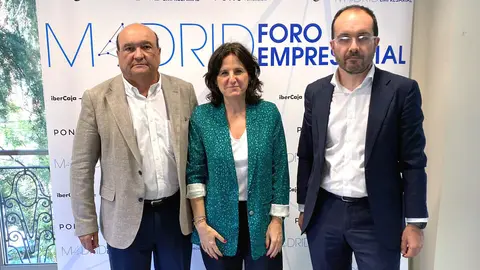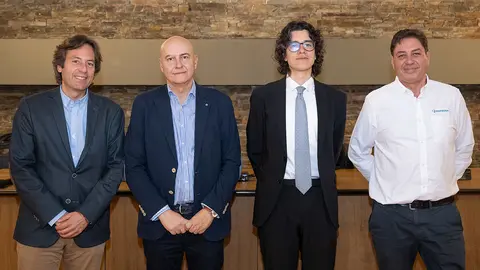Uncertainty in the transport sector in the face of electrification
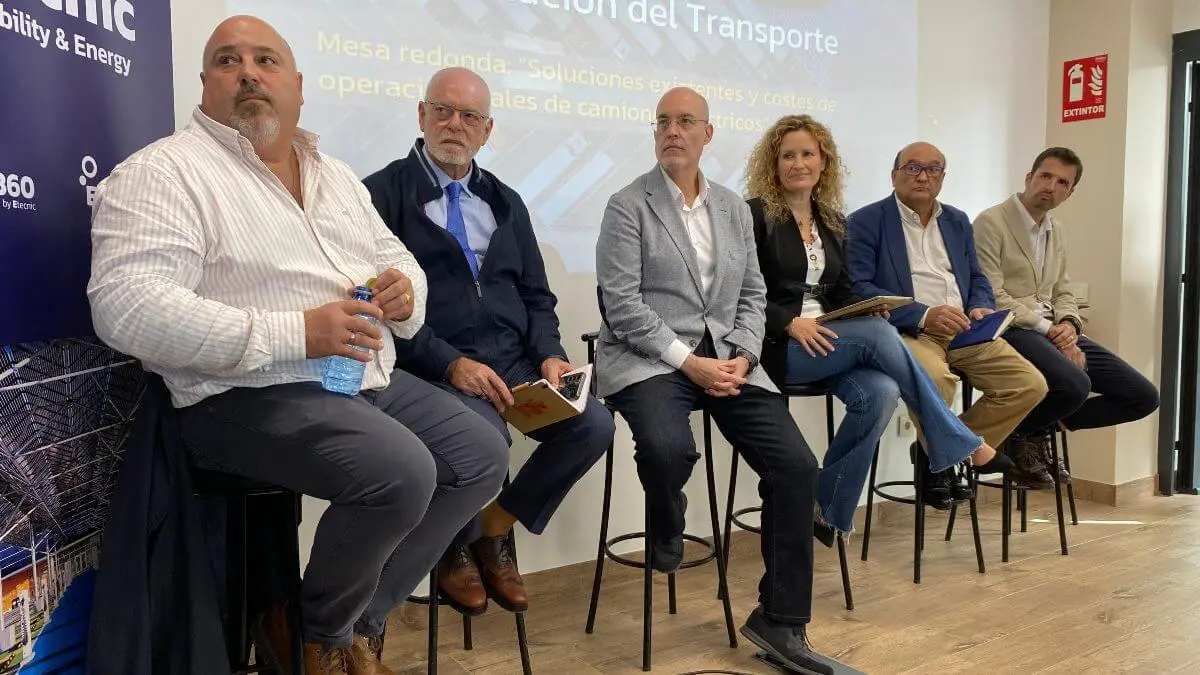
Uncertainty and the economic investment required to purchase electric trucks were some of the main problems that representatives of the transport sector put on the table at the 1st ATG Technical Conference on Electrification of Transport, organised by Xcharge, Etecnic and the Getafe Hauliers' Association.
Against this position, the advocates of electrification highlighted the environmental benefits, assured that the subsequent costs are cheaper and affirmed that there are already enough charging points in Spain.
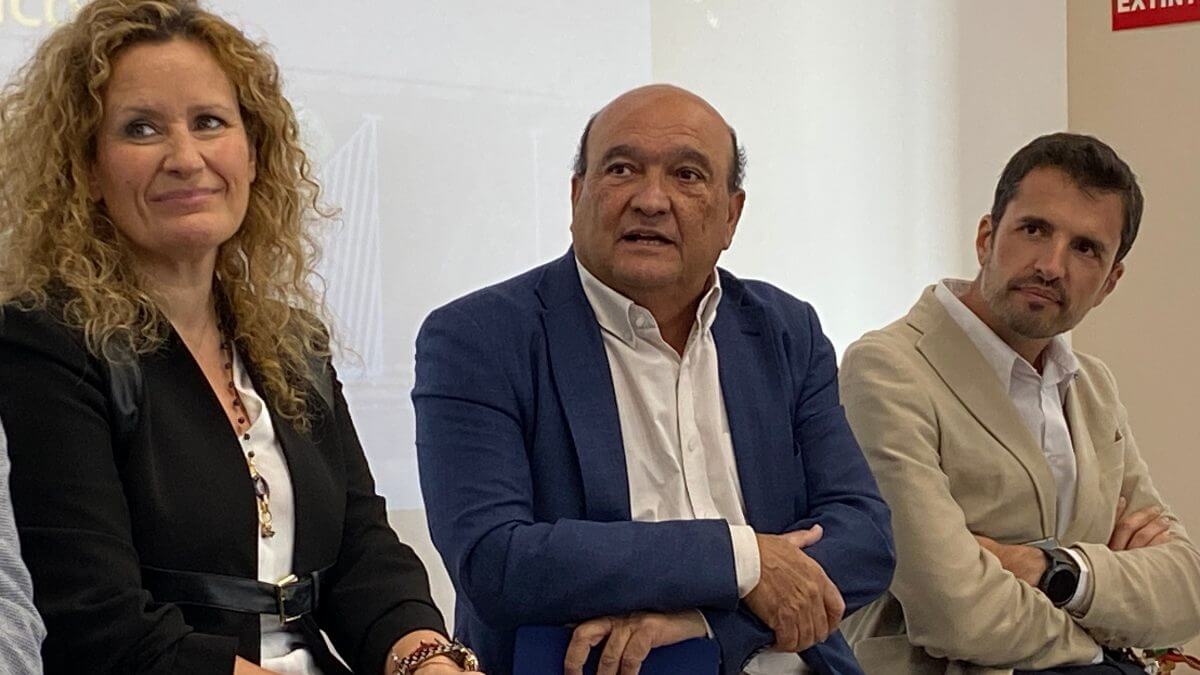
AEVECAR
The day, after a visit to the exhibition area of electric chargers and vehicles of various brands, began with the panel ‘Obstacles and challenges of the electrification of heavy and non-heavy transport’, moderated by Álvaro Salas, director of Autofácil, with the participation of Víctor García Nebreda, Secretary General of the Spanish Association of Fuel and Fuel Retailers (AEVECAR), who stressed the uncertainty that his sector is experiencing in view of the measures that must be adopted to achieve the emissions targets and the difficulties in meeting them. ‘They force us to put charging points at service stations, but they will be profitable when there are enough electric cars,’ said García Nebreda, who also alluded to the difficulty, at times, of the installation itself.
García Nebreda indicated that electrification ‘will be the future’, but not in the short term; and with regard to the 5 million electric cars planned for 2030, which would mean one million per year, he said that we are not there yet. He also reminded that it should not be forgotten that, in addition to electrification, there are other alternatives that should be evaluated.
The secretary general of AEVECAR did not want to overlook the economic difficulty for citizens to acquire an electric car and said that if the average passenger car fleet is 14 years old, it is because people do not have the money, a statement also backed up by the fact that the best-selling car is the Dacia Sendero, ‘which is the cheapest’.
With regard to fuel pollution, García Nebreda pointed out that the most polluting particles are those produced by tyres and asphalt, and that these will also be produced by electric cars. Another issue he wanted to highlight was that of energy security, and he reminded the audience that batteries contain lithium?
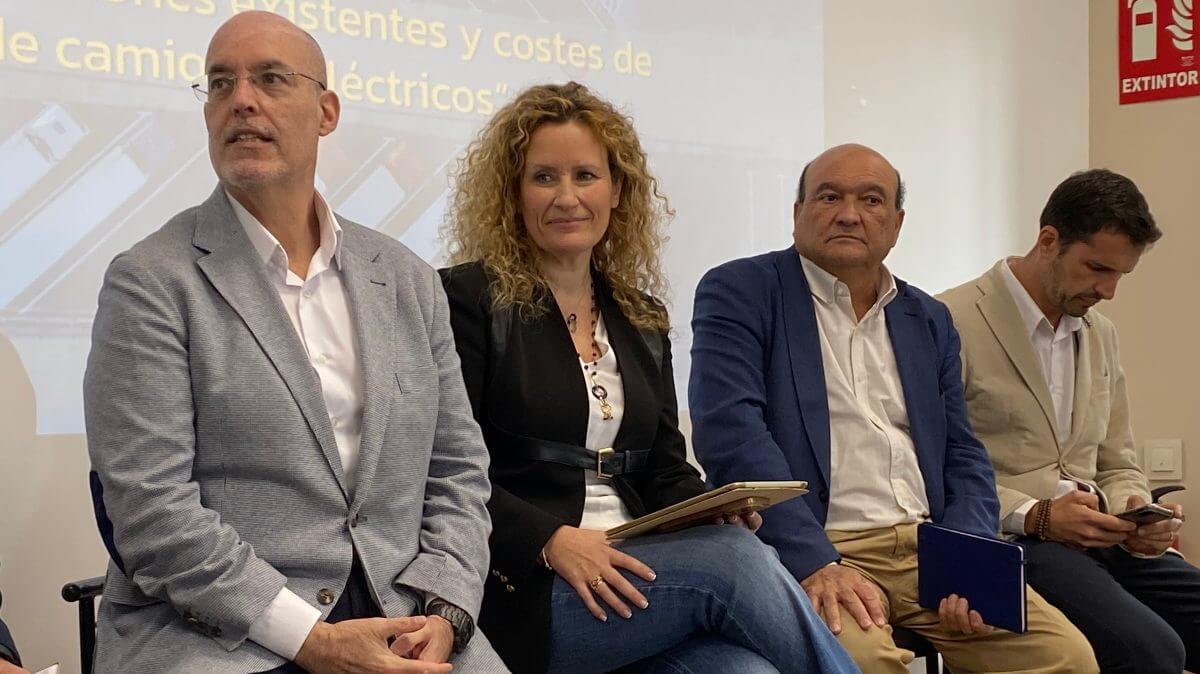
ATG
The president of ATG, Juan Carlos Moreno, also took part in this debate and highlighted the problems that the transport sector has always had: the price of fuel, which represents between 30 and 40% of the activity; unfair competition; the lack of drivers; absenteeism of workers; the legislation itself, as it is the most legislated sector; as well as internal problems: ‘We have to value our work’, he said.
In addition to these problems, Moreno commented, there is the problem of electrification, ‘because we hauliers cannot change our lorries and buy electric ones’. In this sense, he emphasised the large investment that they have to make for this and the problem that it entails, stating that ‘the transport sector moves between winning and losing on a very fine line’.
FENADISMER
The same argument was put forward by Julio Villaescusa, president of the Spanish National Federation of Transport Associations (FENADISMER). Villaescusa insisted on the problem of uncertainty ‘which generates uncertainty for all of us’, and advocated that technicians, manufacturers, politicians, administrations... should be the ones to tell them how and when the sector is evolving and whether it is hydrogen, gas, electrification, biofuels... that should be used. ‘We hauliers don't like experiments’, he stressed.
The president of FENADISMER assured that the haulier will not buy an electric truck if he does not see guarantees of profitability and that the means he needs to do so are viable. ‘We believe in electricity, but you have to wake up because there is still a long way to go, a lot of work ahead of you’, he warned the participating companies.
‘No haulier is going to refuse out of stubbornness, but the haulier needs to combine environment and profitability’, he concluded.
AEDIVE
Arturo Pérez de Lucía, manager of the Business Association for the Development and Promotion of the Electric Vehicle (AEDIVE), defended the electrification of the sector. Pérez de Lucía indicated that electric mobility must be based on enthusiasm, and that in the private sector this is already a reality, and assured that there are high-quality infrastructures to spare. On a professional level, he added, it is not enthusiasm that counts, but TCO, ‘and the numbers come out’.
Pérez de Lucía, while acknowledging that there are still challenges to be solved in the transport sector, spoke of the 37,500 recharging points already existing in Spain, and the existence of charges of up to 400 kilowatts. He also did not hesitate to assure that the price of electricity will become increasingly competitive.
Sustainable Mobility Platform
May López, director of the Plataforma Empresas por la Movilidad Sostenible (Business Platform for Sustainable Mobility), also spoke of the advantages of electrification. ‘It is important to know that sustainability is a key element and the economic component has to go hand in hand,’ she began, a sustainability, she said, that has to be economic, environmental and social. López recalled the demands of the European Union and the regulations that require lorries to have zero emissions by 2040. ‘We must anticipate what is to come in order not to lose profitability,’ she said, after expressing his confidence in the need for electrification.
The last speaker on this panel was Jorge Ríos, founder and CEO of Etecnic, a company specialising in electric mobility installations. In his speech, he spoke of the importance of the ‘three Ds’: digitalisation (to be competitive), decarbonisation and decentralisation of energy.
He defended the great advantages of electrification, as the costs it generates are lower, and denied that the charging network is not sufficient. He also praised the work done by Xcharge as a manufacturer of ultra-fast charging and its Net Zero Series, which, he said, achieves high charging power for trucks.
Faced with investment problems, Ríos highlighted the possibility of reaching different agreements between companies and accessing subsidies that are still in force.
The day was rounded off with a second round table in which the existing solutions and the real operating costs of electric trucks were analysed with the participation of representatives from different brands.


